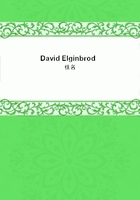
第176章
For though that ever virtuous was she, She was increased in such excellence, Of thewes good, yset in high bount?
And so discreet and fair of eloquence, So benign, and so digne of reverence, And couth?so the poeple's hert embrace, That each her loveth that looketh in her face.
CHAUCER.--The Clerk's Tale.
Hugh returned to Mrs. Elton's, and, in the dining-room, wrote a note to Euphra, to express his disappointment, and shame that, after all, the count had foiled him; but, at the same time, his determination not to abandon the quest, till there was no room for hope left. He sent this up to her, and waited, thinking that she might be on the sofa, and might send for him. A little weary from the reaction of the excitement he had just gone through, he sat down in the corner farthest from the door. The large room was dimly lighted by one untrimmed lamp.
He sat for some time, thinking that Euphra was writing him a note, or perhaps preparing herself to see him in her room. Involuntarily he looked up, and a sudden pang, as at the vision of the disembodied, shot through his heart. A dim form stood in the middle of the room, gazing earnestly at him. He saw the same face which he had seen for a moment in the library at Arnstead--the glorified face of Margaret Elginbrod, shimmering faintly in the dull light.
Instinctively he pressed his hands together, palm to palm, as if he had been about to kneel before Madonna herself. Delight, mingled with hope, and tempered by shame, flushed his face. Ghost or none, she brought no fear with her, only awe.
She stood still.
"Margaret!" he said, with trembling voice.
"Mr. Sutherland!" she responded, sweetly.
"Are you a ghost, Margaret?"
She smiled as if she were all spirit, and, advancing slowly, took his joined hands in both of hers.
"Forgive me, Margaret," sighed he, as if with his last breath, and burst into an agony of tears.
She waited motionless, till his passion should subside, still holding his hands. He felt that her hands were so good.
"He is dead!" said Hugh, at last, with all effort, followed by a fresh outburst of weeping.
"Yes, he is dead," rejoined Margaret, calmly. "You would not weep so if you had seen him die as I did--die with a smile like a summer sunset. Indeed, it was the sunset to me; but the moon has been up for a long time now."She sighed a gentle, painless sigh, and smiled again like a saint.
She spoke nearly as Scotch as ever in tone, though the words and pronunciation were almost pure English.--This lapse into so much of the old form, or rather garment, of speech, constantly recurred, as often as her feelings were moved, and especially when she talked to children.
"Forgive me," said Hugh, once more.
"We are the same as in the old days," answered Margaret; and Hugh was satisfied.
"How do you come to be here?" said Hugh, at last, after a silence.
"I will tell you all about that another time. Now I must give you Miss Cameron's message. She is very sorry she cannot see you, but she is quite unable. Indeed, she is not out of bed. But if you could call to-morrow morning, she hopes to be better and to be able to see you. She says she can never thank you enough."The lamp burned yet fainter. Margaret went, and proceeded to trim it. The virgins that arose must have looked very lovely, trimming their lamps. It is a deed very fair and womanly--the best for a woman--to make the lamp burn. The light shone up in her face, and the hands removing the globe handled it delicately. He saw that the good hands were very beautiful hands; not small, but admirably shaped, and very pure. As she replaced the globe,--"That man," she said, "will not trouble her any more.""I hope not," said Hugh; "but you speak confidently: why?""Because she has behaved gloriously. She has fought and conquered him on his own ground; and she is a free, beautiful, and good creature of God for ever.""You delight me," rejoined Hugh "Another time, perhaps, you will be able to tell me all about it.""I hope so. I think she will not mind my telling you."They bade each other good night; and Hugh went away with a strange feeling, which he had never experienced before. To compare great things with small, it was something like what he had once felt in a dream, in which, digging in his father's garden, he had found a perfect marble statue, young as life, and yet old as the hills. To think of the girl he had first seen in the drawing-room at Turriepuffit, idealizing herself into such a creature as that, so grand, and yet so womanly! so lofty, and yet so lovely; so strong, and yet so graceful!